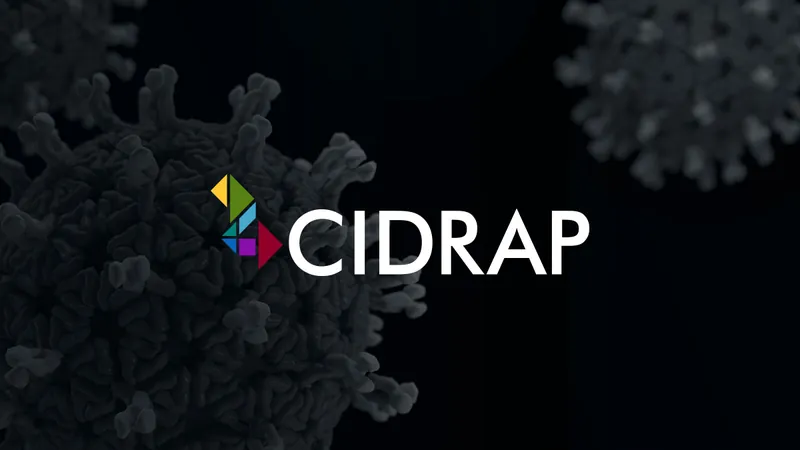
Groundbreaking Discovery Unveils How Severe Infections Weaken Immunity – A Possible Lifesaver!
2024-09-30
Groundbreaking Discovery Unveils How Severe Infections Weaken Immunity – A Possible Lifesaver!
In a remarkable leap towards understanding immune system decline post-infection, researchers from Baylor College of Medicine, in collaboration with key medical institutions, have uncovered a significant mechanism responsible for the long-lasting decrease in immune efficacy following the successful treatment of tuberculosis (TB). Their pivotal findings, recently published in the esteemed Proceedings of the National Academy of Sciences, potentially illuminate a new pathway to rejuvenate immune responses and drastically lower the risk of mortality following severe infections.
“Both sepsis and TB lead to diminished protective immune responses, resulting in higher mortality rates after treatment,” explained Dr. Andrew DiNardo, the lead author and an associate professor at Baylor College of Medicine's section of infectious diseases, and Texas Children's Hospital. “Our study primarily focused on the factors that contribute to immune dysfunction following severe infections.”
It’s been well-established that severe and chronic infections in both humans and animals provoke persistent, long-lasting epigenetic modifications. These changes refer to chemical alterations on DNA that dictate gene activity, affecting how well the immune system can respond to threats.
Specifically, tuberculosis is known to impede immune function by inserting additional methylation tags onto genes involved in immune responses, leading to a reduction in protective protein production and heightened vulnerability to subsequent infections. However, until now, the specific mechanisms responsible for these epigenetic changes during infections remained largely enigmatic.
Prior research has pinpointed the tricarboxylic acid (TCA) cycle as a crucial metabolic element influencing epigenetics in cancer. Dr. DiNardo and team sought to determine whether the TCA cycle also played a role in regulating DNA methylation in the context of immune tolerance following infection.
Their findings were striking: when human immune cells were exposed to a bacterial product known as lipopolysaccharide and Mycobacterium tuberculosis, they became immune-tolerant. This phenomenon was correlated with enhanced TCA cycle activation in patients suffering from both sepsis and TB, linking it directly to increased DNA methylation.
Promisingly, when TB patients received standard treatment combined with everolimus—a TCA activation inhibitor—the harmful methylation alterations within their DNA were significantly lessened. This suggests that everolimus may offer a novel strategy for restoring immune function after severe infections.
“Tuberculosis is particularly fascinating; when patients finally receive diagnoses, they have often endured symptoms for more than three months,” Dr. DiNardo noted. “Our study highlights that by introducing everolimus to standard antibiotic therapy for TB, we can meaningfully reduce harmful DNA methylation changes even six months after infection. This leads us to a hopeful prospect of inducing epigenetic repair.”
Co-author Dr. Cristian Coarfa, who is also an associate professor of molecular and cellular biology at Baylor, added, “What we’ve discovered has the potential to revolutionize our approach to treating infections. Our methods aren’t confined to tuberculosis—this evidence points to broader applications across various infectious diseases.”
As the research team looks ahead, they aim to pinpoint which specific post-TB epigenetic modifications contribute to increased illness and mortality. Their goal is to identify individuals who would gain the most from an innovative host-directed therapy aimed at healing these epigenetic scars.
In a world where infectious diseases pose a significant health threat, this research may not only enhance the treatment of tuberculosis but could also pave the way for transformative strategies in combating other severe infections!



 Brasil (PT)
Brasil (PT)
 Canada (EN)
Canada (EN)
 Chile (ES)
Chile (ES)
 España (ES)
España (ES)
 France (FR)
France (FR)
 Hong Kong (EN)
Hong Kong (EN)
 Italia (IT)
Italia (IT)
 日本 (JA)
日本 (JA)
 Magyarország (HU)
Magyarország (HU)
 Norge (NO)
Norge (NO)
 Polska (PL)
Polska (PL)
 Schweiz (DE)
Schweiz (DE)
 Singapore (EN)
Singapore (EN)
 Sverige (SV)
Sverige (SV)
 Suomi (FI)
Suomi (FI)
 Türkiye (TR)
Türkiye (TR)